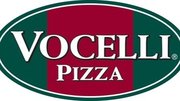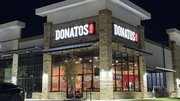Article
Naples Tomato's great franchising experiment
New pizza franchise owner Jack Serfass encourages franchisees to localize produce, meats and wine list.

October 15, 2009
Is it possible to have a truly artisan pizza franchise that maintains its standards of excellence across all units, even while sourcing local ingredients and menu items?
Jack Serfass thinks so. He's co-founder of Naples Tomato, a Naples, Fla., pizzeria offering homemade food and imaginative wine lists. Like the rising class of hardcore pizzaiolos that hearken back to the Vera Pizza Napoletana—the Italian decree outlining a true Neapolitan pizza—Serfass says his flavors are steeped in Mediterranean tradition.
But that flavor profile is not the big news. What is: Serfass has just announced his plans to franchise. He's teamed with iFranchise to bring at least two more units to the East Coast next year, and then across the nation after that.
"Our goal is to build a vine, not a chain, that brings together franchisees with a franchise system that connects people to people, winemakers to guests, and the business with the community," Serfass said.
The owner documents that idea beyond just theflowery language: While most franchise owners look to standardize operations, Serfass loosens that ideal for the food and freshness's sake. For example, franchisees will be taught to make not only dough but also their own mozzarella in-house for the cheese menu.
If that seems like a nightmare for unit-to-unit consistency, that detail is simply a microcosm of the bigger idea: Naples Tomato franchisees will be encouraged to localize their concepts. Serfass feels that sourcing local, in-season produce is essential to Naples Tomato standards, and he doesn't want to preclude any area's culinary specialties—least of all the bountiful waters of the East Coast. For example, the existing location serves up a lot of indigenous Stone Crab. But a location in Boston might do a lot more lobster.
He wants to reflect on local wine tastes, too. Serfass said the restaurant's extensive wine program will be 80 percent standardized 20 percent up to the franchisee. The owner should know a thing or two about appealing to sophisticated wine palates: Naples Tomato has been the recipient of Wine Spectator's Best of Award of Excellence for restaurants the past three years.
If Serfass's concept works, it could help industry leaders to see the value of standardization in a different light. Naples Tomato isn't the first Italian chain to use local produce, but that certainly isn't the norm — especially not to the degree of Serfass's vision.
Indeed, iFranchise CEO Mark Siebert said he believes Naples Tomato's "Vine Dining" concept fills a gap in the restaurant franchise industry. Siebert has 30 years experience in franchise consulting.
| ||||||||||||||||||
Whether it works, though, remains to be seen. Serfass is hopeful but cautious.
"(We're) trying to make sure people understand, from restaurant to restaurant, that you're still in Naples Tomato, that standards are consistent, but at the same time not … processed. It offers a little uniqueness."
The typical Naples Tomato franchise store will occupy approximately 7,000 square feet and serve about 220 guests with indoor and outdoor seating.
The original company-owned Naples Tomato restaurant located in Naples, Florida, earned total revenues of $3,164,701 in 2008 and $3,180,558 in 2007.











